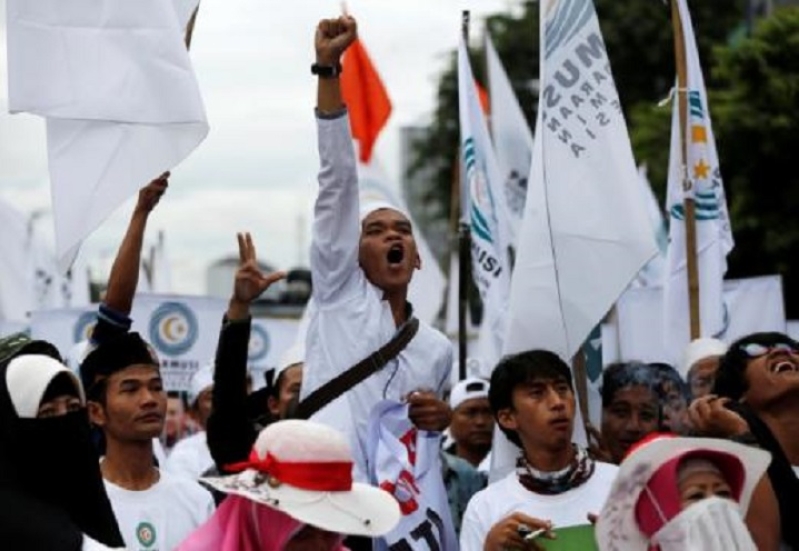
The results of the recent gubernatorial election in Jakarta, with the incumbent Christian governor losing to a Muslim candidate after a religiously tinged campaign, could be a sign of rising political Islam in Indonesia, some experts said.
Basuki Tjahaja Purnama, popularly called Ahok, lost the election to former minister of Education and Culture Anies Baswedan after hardline Islamic group Islamic Defenders Front (FPI) led a series of massive protests against him for his alleged blasphemy against the Quran.
"This is a major defeat for us. The landscape is changing and it's not favourable to us," Eva Kusuma Sundari from the Indonesian Democratic Party of Struggle said, according to Today Online. "We have to figure out our own understanding of this political Islam without giving up our constitutional and nationalistic approach."
Before the blasphemy controversy erupted, Ahok was leading the polls by a wide margin from his opponents, owing to what many Jakartans considered as a good performance during his term as governor. However, hardliners campaigned against him by telling Muslims not to vote for him because he was non-Muslim, or an "infidel."
In a speech, Ahok addressed the issue and told his audience they were free to choose any candidate according to their conscience and quoted a verse from the Quran. The speech was caught on video and was later on edited and uploaded to social media where it went viral, sparking the Muslims' anger toward him.
The controversy ended with a blasphemy charge being filed against Ahok, for which he remains in trial. According to law, he could face up to five years in prison.
Interestingly, a day after his defeat, the prosecution has recommended that he be given a two-year probation instead of a five-year jail sentence should he be convicted. If he would not commit any crime within that two-year probation, he could skip jail time altogether.
Chief prosecutor Ali Mukartono said the lighter punishment was recommended for Ahok in recognition of his efforts in "advancing the city of Jakarta."
"If within the two years, Ahok doesn't commit any new criminal act, like corruption, stealing... he will be free," I Wayan Sudirta, Ahok's lawyer, explained, according to The Star Online. "If within that two years he does commit a criminal act, he has to serve the one-year jail sentence."
Going back to the root of the issue, many people are asking: Are Muslims really not allowed to vote for a non-Muslim candidate?
Around 100 clerics from the Nahdlatul Ulama, the biggest Muslim organization in the country, gathered for a discussion to answer that question, and they concluded that Muslims are allowed to vote for non-Muslim candidates "based on their individual rights" and based on the Constitution.
Ahok's supporters have maintained that the accusations against him in the name of religion were used to manipulate the voters. This leaves a lot of people wondering how rising Islamism could affect the democracy in Indonesia, where a relatively tolerant form of Islam is observed and the practice of other religions in legal.
Professor Tim Lindsey, Director of the Centre for Indonesian Law, Islam and Society at the Melbourne Law School, University of Melbourne, said the recent election results have shown Islamist hardliner groups that "emerged from the fringe" how "playing the Islam card" could wield great power.
"This is a rehearsal for (the 2019 presidential election) and it sends a very clear message that if you play the Islam card, it's going to help you," he said, according to Today Online. "If groups like these can get hundreds of thousands on the streets, you are going to want to use that power."
Social and political scientist Philips J. Vermonte said the election results proved how people belonging to minority groups like Ahok are still not afforded the same chances as others.
"This proves that absence of equal opportunity for double minority people like Ahok," Philips said, adding that "people from minority groups could refrain [from participating] due to conflicts [related to religion and ethnicity]."
Meanwhile, a spokesperson for the Muslim hardliner group FPI said they are already looking at the 2019 presidential election.
"We will maintain the existing unity of Muslims. And we will prepare Muslim unity for 2019," Slamet Maarif said, according to Today Online.







